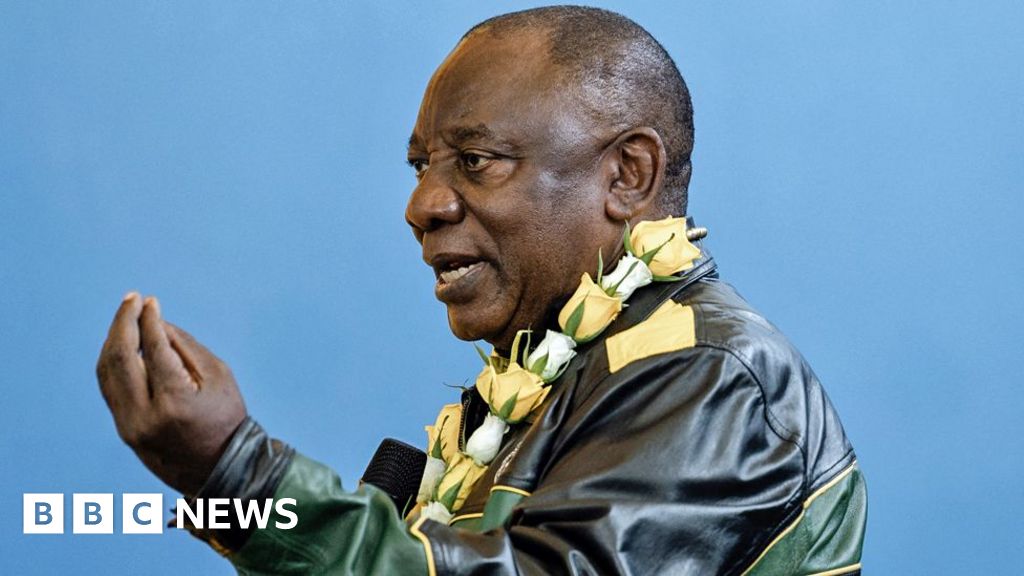South Africa: Ramaphosa At the White House - allAfrica.com
Will the U.S. and South Africa recover relations from the brink?
The backdrop for the May 21 meeting between President Trump and President Cyril Ramaphosa of South Africa could hardly be bleaker. In a matter of months, the United States has cut off foreign assistance to the country, dashed hopes for extending an existing trade agreement, threatened it with new 30 percent tariffs, expelled its ambassador to Washington, and repeatedly accused the government of indifference to an ongoing genocide in the country. Indeed, for an administration relatively indifferent to African issues, the Trump administration has been uncharacteristically focused on South African developments, both real and imagined.
There are genuine, substantive areas of disagreement between the U.S. and South Africa that predate the current diplomatic crisis and triggered bipartisan concern on Capitol Hill long before President Trump began his second term. The leadership of South Africa's African National Congress (ANC), still the dominant political party in the country though no longer able to command an outright majority, sees the world through an ideological lens in which the United States is frequently understood as an impediment to a more just world, while states like Iran, Russia, and China, despite their violent suppression of dissent domestically, are framed far more positively. While South Africa claims to be nonaligned, its reaction to Russia's invasion of Ukraine indicated that it remains willing to give Moscow quite a sweeping benefit of the doubt, and that its opposition to imperialism is profoundly inconsistent.
In 2023, the South African government, channeling the sympathy for the Palestinian cause that is widespread across the continent, filed a case at the International Court of Justice accusing Israel of pursuing a campaign of genocide in Gaza. Ongoing U.S. military support to Israel has come in for withering criticism, and South Africans accuse the United States of hypocritical, selective concern for human rights.
More recently, the fact that South Africa, like many smaller states, values multilateralism and wishes to see international institutions reformed to better reflect African equities has clashed with the Trump administration's disdain for those same institutions and insistence that they police themselves to reflect Washington's preoccupations. There is no better example than the apparent U.S. rejection of the upcoming G20 Summit in South Africa, which has been explained alternately as the U.S. taking offense at the Summit themes of "equality, solidarity, and sustainability" and as a protest of the supposed persecution of white South Africans.
These issues make for a crowded agenda. But domestic political considerations also factor into the calculus of both leaders. For Ramaphosa, standing up to President Trump and insisting that South Africa will not be bullied is essential. Political rivals have already suggested that his trip to Washington is a fool's errand, and any perceived show of weakness will be seen as a betrayal of South African values and sovereignty. But at the same time, a White House ambush could have an upside. Ramaphosa is well aware of the fact that being targeted by Trump can be used to powerful political advantage to unite popular sentiment, as demonstrated by recent elections in Canada and Australia.
At the same time, Ramaphosa needs some positive economic news for the South African people, who confront high unemployment, tremendous income inequality, and sluggish growth. The end of duty-free access to the U.S. market for some South African exports will not devastate the South African economy, but it will bite. All reports indicate that Ramaphosa arrived in Washington prepared to appeal to Trump's instincts as a dealmaker. Having stacked his delegation with potential Trump-whisperers like golfers Ernie Els and Retief Goosen, as well as billionaire and luxury-goods magnate Johann Rupert, Ramaphosa has accepted some political risk at home in pursuit of a thaw in relations. He has identified a way to placate Elon Musk, who had balked at complying with South African laws in his efforts to bring Starlink to the country, and will likely propose some kind of bilateral trade arrangement that comports with the Trump administration's "trade, not aid" approach to the region. But a wholesale abandonment of policies aimed at addressing the legacy of apartheid is not in the cards, as a matter of both principle and political survival.
Thus far, President Trump has calculated that the benefits of a solid bilateral relationship pale in comparison to those gained by vilifying South Africa, particularly among a segment of his base that is allergic to efforts to redress historical injustices and eager to embrace conspiracy theories about persecuted whites. The U.S. president clearly believes there is a receptive audience for his false claims about genocide in South Africa and his administration's high profile rush to resettle white South African "refugees." He is fond of performative displays of power, and may see South Africa as an ideal place to make the point that the U.S. will punish weaker states that do not align with his preferred positions.

Sign up for free AllAfrica Newsletters
Get the latest in African news delivered straight to your inbox
The likely consequence of this policy direction is not good news for the United States. U.S. businesses operating in South Africa will suffer alongside South African enterprises. The result will be greater South African enthusiasm for China and Russia, and economic headwinds that will politically advantage South African actors that are far more hostile to America than the current South African government. A new generation of South Africans will regard the United States as an antagonist eager to see their multiracial democracy fail, and America's rivals will use the Trump administration's efforts to punish South Africa to paint the United States as a malign actor on the world stage.
Even if Trump and Ramaphosa strike a deal, this step back from the abyss may prove to be a temporary reprieve rather than a reset. Any agreement will need to deliver positive results on both sides of the Atlantic to overcome the divergent worldviews and domestic pressures that will continue to pull the United States and South Africa apart.








